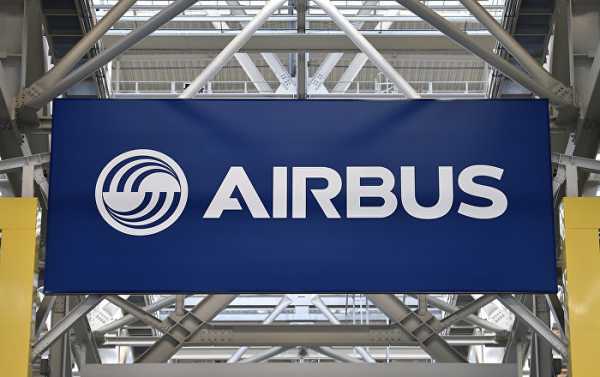
Chinese officials are set to ink a major deal with European aviation company Airbus despite ongoing trade tensions with the US. If inked, the deal will test new European legislation aimed at circumventing US sanctions and tariff mechanisms.
An $18 billion-dollar deal for roughly 180 A320 Neo narrow-bodied planes was proposed in January, Bloomberg reported Thursday.
Airbus CEO Tom Enders and commercial aircraft president Guaillaume Faury will discuss the deal in an upcoming visit to Beijing, anonymous sources said on Thursday.
The meeting commemorates the ten-year anniversary of Airbus’s first assembly operations and helicopter plant in China. China’s aviation regulator CAAC said it met with Faury on Wednesday without providing further details.
An Airbus spokesperson told Sputnik that Bloomberg had speculated early and that Airbus constantly maintains dialogue with its clients.
“As a leading aircraft manufacturer we are always in talks with our customers,” he said, mentioning that “our talks with our customers are confidential [and] we comment on deals when read”.
Despite uncertainty on the deal’s final conditions, Chinese President Xi Jinping is expected to showcase the purchase at China International Import Expo in Shanghai on November 5, with additional appearances at the Zhuhai air show November 6-11.
China’s recent deal with Airbus follows multiple developments on measures taken by global powers to continue trade with sanctioned countries, in addition to circumvent US tariffs and sanctions.
EU Special Purpose Vehicle (SPV) and Blocking Statute
The European Union announced on Monday it would set up a Special Purpose Vehicle (SPV) designed to facilitate trade with Iranian companies, with nations reconfirming their commitment to uphold the Joint Comprehensive Plan of Action (JCPoA), EU High Representative for Foreign Affairs and Security Frederica Mogherini said. The remaining five JCPoA countries-the UK, France, Germany, China, Russia-have pledged to uphold the deal.
The SPV follows EU steps to uphold a blocking statute initiated August 6 that would shield European businesses from US-imposed sanctions and tariffs given that Iran respects commitments it pledged in the JCPoA, the European Commission stated.
China also published a damning report on its stance towards US sanctions after the US slapped Beijing with $60 billion in tariffs on top of $200 billion on Chinese goods set to take effect Monday.
China’s report entitled ‘The Facts and China’s Position on China-US Trade Friction’, noted that current trade relations with the US posed a “a grave threat to the multilateral trading system and the principle of free trade.”
It added that China was resolving disputes through dialogue and consultation in addition to exercising great levels of patience, stating that the “US side has been contradicting itself and constantly challenging China,” the document read.
‘Unintended Consequences’ in the Automotive Industry
German automaker BMW and US electric vehicle trailblazer Tesla announced plans to circumvent trade tariffs woes in July by moving production to China instead of American-based factories, moving in step with Harley Davidson’s plans to move production abroad in late June.
Tesla announced a new Shanghai-based Gigafactory after tariffs raised auto prices by 20 percent, the Wall Street Journal reported. BMW also inked an agreement to manufacture 520,000 cars in China by 2019, with an additional 50-50 “Spotlight Automotive Limited” joint venture with Chinese manufacturer Great Wall Motor to produce MINI electric vehicles in China’s Jiangsu province.
Volvo, a subsidiary of the Geely Holding Group, may also cancel proposals to expand production in Charleston, South Carolina after pledging to increase factory staff from 1,200 to 4,000, WSJ noted.
‘Total’ Collapse of the Pars 11 Project
China’s state-owned oil giant China National Petroleum Corporation (CNPC) took over shares from French oil conglomerate Total August 11 with CNPC subsidiary China National Oil and Gas Exploration and Developent Corp. leading negotiations to acquire the remaining shares. The two oil companies had been working alsongside Iran’s Petropars on the South Pars since 2017, with $4.8 billion in investments over 20 years.
However, the deal faltered, with Total withdrawing due to US sanctions and US president Donald Trump’s May 8 pullout from the JCPoA.
Sourse: sputniknews.com






